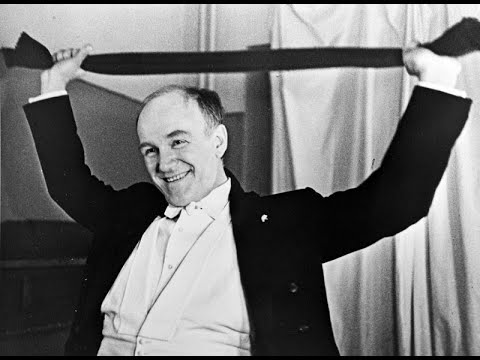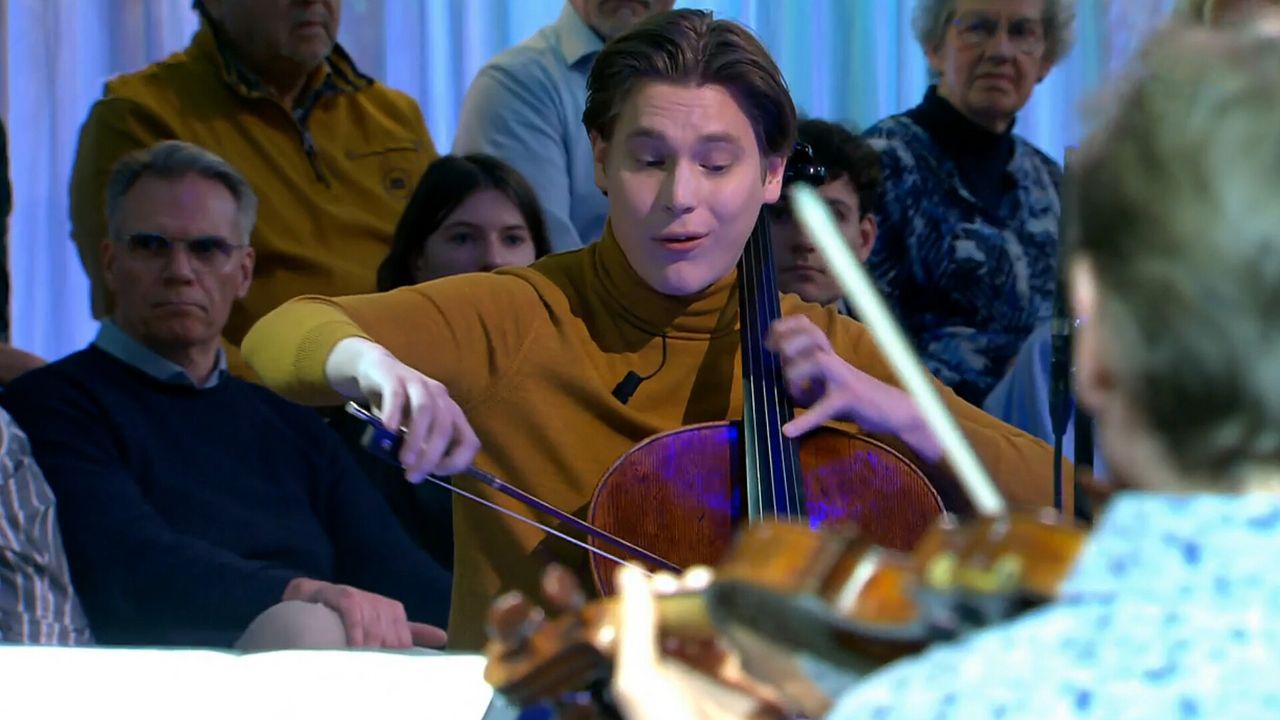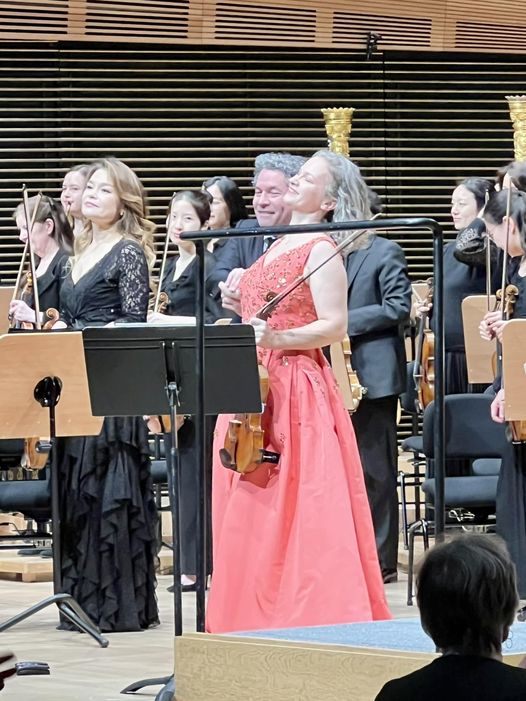Analysing Sviatoslav Richter’s thoughts in the 1958 Tchaikovsky
NewsThe Bulgarian statistician Ivailo Partchev has sent us his detailed analysis of the votes cast in the 1958 Tchaikovsky Competition that was won by the American Van Cliburn.
Enjoy!
Richter, Van Cliburn, and the others
Ivailo Partchev
12/29/2021
A facsimile of the votes in the second round of the First Tchaikovsky Competition (1958) has surfaced, stirring up memories and rumours.
The votes
Someone has highlighted the row with the marks given by Sviatoslav Richter in yellow, the column with the marks given to Lev Vlassenko, winner of the second round, in green, and the average marks of the three other laureates, Van Cliburn, Liu Shikun, and Shtarkman in blue. There are three empty cells as Lev Oborin did not vote for his two students, Eduard Miansarov and Natalia Yuzbasheva, and similarly Neuhaus did not vote for Julian Guttman.
The table is not a novelty, really, being reproduced in Isacoff (2017). Still, to see it in original form has a lot to stimulate the imagination: music, politics, intrigue, effort, victory, defeat, differences in national and personal taste. While most publicity goes to the victor, I am interested in the others. Isacoff (2017) says a bit about the prospective careers of some of them, but it is very brief and quite incomplete. We all know about Roger Boutry or Norman Shetler. In Bulgaria, Anton Dikov became a leading national pianist, outshining Milena Mollova – at 18, she had been the youngest participant, she must have played wonderfully and warmed the heart of Pancho Vladigerov by playing one of his compositions. The biographies of Naum Shtarkman and Liu Shikun read like (horror) novels. But what about those remaining behind the Iron Curtain? What do we know about Lev Vlassenko, Eduard Miansarov, Alexei Skavronski or Inna Malinina? And who was the Alexander Ikharev to whom Neuhaus took care to award a mere 1, something that even Richter would not do?
Another attraction of this little paper is a rough attempt at a statistical analysis to reveal details in the data not visible to the naked eye. I have typed in the data to my best ability; in case of doubt, I have resorted to the numbers in Isacoff (2017). The three missing cells have been filled in with an established statistical method to avoid data loss. If we imagine the table as an image with the numbers 0 to 25 describing the relative luminance of each cell, what I do to the data is similar to the techniques used to denoise a blurry image. Because, unlike in a real-life image, the sequence of the rows and the columns is arbitrary, they are both reordered to facilitate interpretation.
We end up with two graphs. The first one includes the first four `components’ and removes the remaining 13, treating the latter as noise.
The graph cleanly separates the finalists from the rest. Cutting the jurors into 6 groups is an arbitrary decision but whatever number we choose, the result is always thought provoking. Richter and Neuhaus stand out from all the others, strikingly similar and yet different. They both contributed the most to the success of the triumvirate. Richter’s contribution to Van Cliburn’s victory and his slighting of Matsuura are largely due to his very own voting system (25-24-23, 15, 3).
Other ‘dissenters’ are Vladigerov, of whom I will speak later, Sir Arthur Bliss, who gave somewhat similar marks to all participants, and the Portuguese-speaking Sequeira Costa and Camargo Guarnieri. Among the group of the big consensus, it is probably worth noticing the similarity between Gilels and Kabalevsky.
This plot contains the first component, which is related to the overall strength of the candidates and the consensus thereon. The next step is to remove the first component in order to concentrate on the more intimate differences in personal and, perhaps, national taste.
Again, Richter’s and Neuhaus’ judgment are far apart from the others’ but generally similar. Even accounting for the overall level, Richter’s preference for Van Cliburn and slighting for Maatsura are even more visible. A stranger to Moscow Conservatory internal politics, Vladigerov gave relatively higher marks to Oborin’s students, and a shoulder to the two Bulgarian contestants. The specific preferences of Costa and Guarnieri are more clearly outlined (they appreciated Japanese Maatsura and all Soviet pianists disliked by Richter and Neuhaus), and the group of the big consensus is split into big and bigger consensus.
Software used: R (R Development Core Team 2005) and packages missMDA (Josse and Husson 2016) and pheatmap (Kolde 2019).






“statistician”…I don’t trust these jobs.Statistics are a gathering of figures and depending how you interpret them…you can virtually say anything you want to say.Weather forecast or statistics are similar.
When studying math’s I immediately put this cource aside.
Richter preferred Van Cliburn and that is it!
Jealousy may be from te others????
This comment is utter nonsense. Statistics done correctly, as in this case, are an indispensable foundation of modern life. It is a regrettable fact that the general public gets no training in statistical methods at any point in a typical educational career. [I strongly believe that statistics should be taught starting in kindergarten, as it was in one laudable German experiment.] As a result, the general public is taken in every day, by all sorts of malevolent operatives, up to and including those who promote fatally false health information- particularly in these troubled times. Bravo and thank you to Dr. Partchev for this interesting analysis.
Can you please make a video explaining statistical analysis to me?
Here is my documentary on the ‘58
https://youtu.be/szrijKC-X5E
Interesting, but without the score sheets from the subsequent rounds, it’s hardly conclusive. Presumably, Richter and Neuhaus gradually convinced enough other judges to build a consensus about the eventual top three, but without the score sheets, we can only speculate on how that consensus developed. In particular, I wonder how the other notable pianists (Gilels, Oborin, Hernadi) eventually decided.
I’m not following what this analysis reveals.
By and large, it looks like the system worked — whatever biases some judges may have had, the pool of judges was properly so large that enough judges voted honestly that the right person won, and on top of that, Khrushchev didn’t interfere with the scoring and gave Cliburn a bear hug after a concert to publicly communicate his approval.
You were probably looking for forensics, a conspiracy theory, or a denouncement of Richter and/or Van Cliburn, but there is none of that at all. I have shown you a way of looking at the table of numbers. First we examine the overall level of achievement and how the jurors assess that. Then we strip it off to reveal the structural differences of taste and lo and behold, the two students of Oborin are so close, so are the two Bulgarians, the French. You can see Gilels’ great efforts to be objective, and how far he was from the Richter-Neuhaus tandem. And so on ad libitum, depending on your interest. It is just the table of scores in the second round. I removed a bit, rearranged a bit, but I didn’t add anything at all.
Nothing more to add-you said it!
Conclusion: If you want your favorite to win, score him/her very, very high, and score everyone else very, very low.
That’s why the Olympics drop the highest and lowest scores! Under Olympic rules, Richter’s skewed preferences would’ve been cancelled out.
Very enjoyable reading. Thanks for continuing to update the Cliburn post – I might do a little research myself on some of the judges & contestants. Fascinating stuff!
Pancho Vladigerov’s cousin of Boris Pasternak, that was under oppression for publishing “Doctor Zhivago” abroad, for getting Noble prize.
This is, of course, old news. Of the names mentioned, Lev Vlassenko was very well known to Americans, as he had various appointments and public appearances here, and I included quite a bit about him in the book.
Well, whatever – Cliburn could have won this competition with one hand tied behind his back. There were many fine players there, but no one reached his level. It was a level that even he couldn’t sustain as the years went on.
“””It was a level that even he couldn’t sustain as the years went on.”””…like most of these “first prize pianists”””
He mostly played Tchaikovsky OP 23…
“Cliburn could have won this competition with one hand tied behind his back.” – In that case he could have still played Prokofiev – but only the 4th concerto. 😉
Few will notice the personality of the french judge: pianist Arnaud de Gontaut-Biron (1897-1985) was offspring of one of the oldest families of french nobility; his brother Armand was a close friend of Arthur Rubinstein, as recounted in the latter’s memoir. His only known recording seems to be Henri Sauguet Piano Concerto, conducted by Désormière in 1943:
https://www.youtube.com/watch?v=rfimE49NYU8
If one looks at video from that time, Cliburn is the tallest of all, very handsome, a sweet demeanor, and charismatic, with great charm and Southern graciousness. It was his moment in time, and the world needed that then, and could use a bit of that now.
Reading in the archives of a Newsbulletin edited by Falk Scharz(founders of the FRIENDS OF S.RICHTER) I can confirm that in a book written by a ROSTISLAV DUBINSKY(violonist of the Borodin Quartet from 1946 to 1975 ) that this might be true.Gileles is the one who asked Richter about the 1958 Tchai…competition what he thought of the contestants and replied:by giving ZERO to contestants other than VCB.Also because he hated being in the jury.
Gavrilov confirms that Richter either gave 25(max) or…ZERO.